A traditional Kashmiri wedding is as surreal and beautiful as Kashmir itself is. Known as “Paradise on Earth”, Kashmir is India’s most beautiful location to be at. With breath-taking valleys, snow-clad mountain peaks and floral plains, Kashmir is a lover’s dream vacation spot for pre wedding shoots and honeymoon. Not only this, Kashmir is also known for its rich culture and tradition which can be very well witnessed at Kashmiri weddings.
And, while most of us know quite a lot about Hindu and Christian weddings, not many of us know anything about traditional Kashmiri weddings. Trust us, they are a lot more intimate, loving and full of fun-filled rituals that you would want to get married according to Kashmiri rituals!
So, here’s a complete guide to host a traditional Kashmiri wedding:
Decoding Kashmiri Wedding Rituals
1. Search For The Perfect Bride/Groom Begins With Manzimyor!
A Manzimyor is a Kashmiri term for a matchmaker. Primary, a Manzimyor is hired by the family to find a suitable bride/groom for their prospective boy/girl. A Manzimyor then shares suitable profiles with the family in a process called Parche Traavum.
2. Thap Traavum- Officiating The Wedding!
The respective families officially announce the wedding after the matching of horoscopes. The groom’s family then gifts the bride with a lot of gold jewellery and “Poend” – King Edward stamped coins. Later ‘majmas’ (huge copper plates) of sweets and dry fruits are sent to all the relatives to announce the wedding.
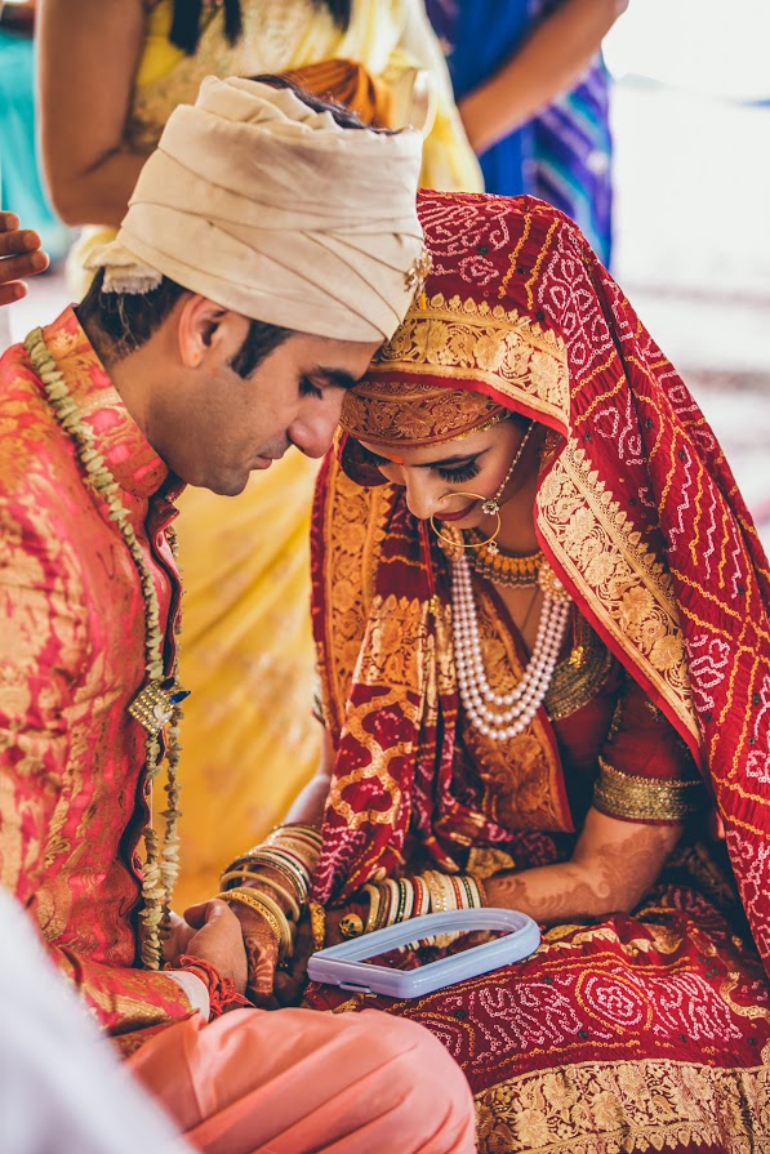
3. Nikah Nishayn – Engagement
This formal engagement ceremony is usually hosted by the bride’s family. Close family and friends mark their attendance at this lavish feast called the Wazwan.
4. Saatnaam
It is yet another grand lavish feast with folk music and dance which takes place to officially announce the wedding date to close friends and family.
5. Malmaenz -The Traditional Haldi
The wedding celebration kick-starts with the “Malmaenz” or haldi ceremony. The elder women of the family oil the bride’s hair and tie it into various tiny braids (Locally called ‘Waankh’) and wrap them with colorful ribbons. Then these women sing the famous Kashmiri wedding songs and undo these fancy braids one by one.

6. Maenzraat – The Traditional Mehendi
According to the traditions, the night before the Kashmiri wedding is Maenzraat, where the women in family apply mehendi or henna on the bride’s hands and feet.
7. Aab Shehrun
On the day of the wedding, the bride takes a bath and cleanses herself accompanied by her mother or an elder sister or a friend. After the bath, she wears the traditional Kashmiri Pheran which is hand woven with silver or gold thread. Later, she offers two Rakath of namaz and recites verses from the holy Quran.
8. Nikah Khwaani
The priest recites holy verses of Quran and prays for the happily ever after of the bride and groom.

9. Yini Wol
Post the wedding, all families and friends gather together for lunch and bless the couple. The feast is called ‘the Kashmiri Wazwan’ which consists of a long list of non-vegetarian delicacies.
10. Mehraaz Saal
Next, in the evening, the groom along with his baaratis are showered with a royal treatment. Groom is made to sit on Masnand- a platform made of the finest silk carpets. They are served food in beautifully carved and polished copper plates. Right from the appetizers to the desert, everything is a superior version of the lunch served in the daytime to other guests and relatives. This grand feast is known as the ‘Mahraaz Saal’.
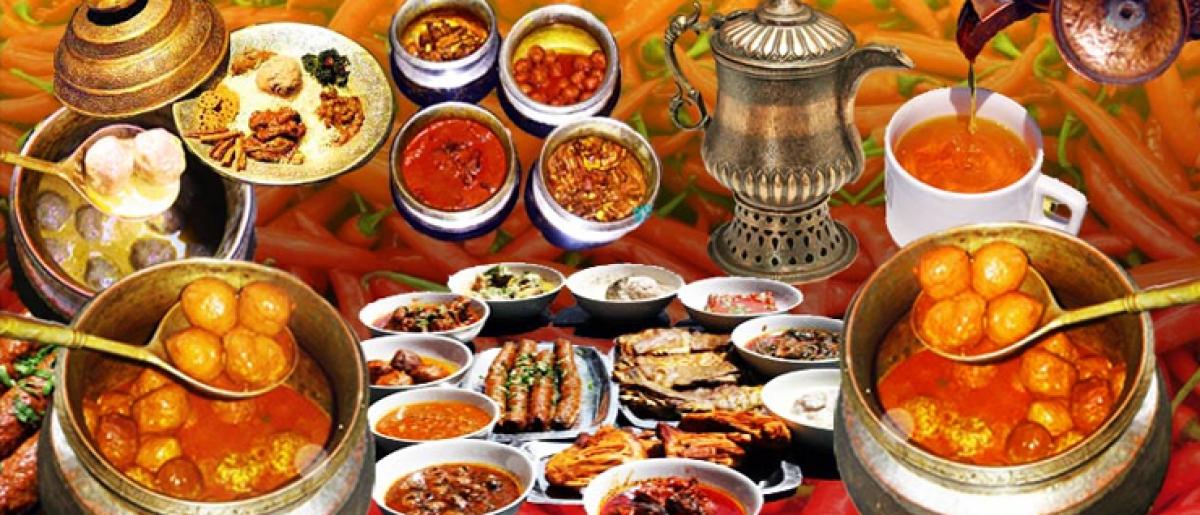
11. Ruksati
Post-dinner, the bride finally bids farewell to her family. Ruksati or Vidai is a very emotional moment for the bride and her family.
12. Muhar Tullun
The groom’s mother welcomes the bride to her new house and family and lifts the veil from her face. Family members and relatives give precious gifts to the bride and women sing traditional wedding songs in honour of the new bride.

13. Walima
The next day, the family of the groom holds a feast known as Walima or a reception. Family, friends, and other people from the community are invited to bless the newlywed.
14. Khabri Gasun
For a few days after the wedding, the bride’s relatives except her parents, visit the groom’s house and give gifts to the couple, mostly in the form of cash.
15. Phiri Saal
A few days later, the family of the bride invites the couple and the rest of the family members for a meal at their house. The invitation is known as Phiri Saal.
16. Satim Doh
The seven days post the Kashmiri wedding calls for the celebration too. During these seven days, the bride wears seven different colours and does not do any household chores. Following the seventh day, the family members of the bride are invited for a feast at the groom’s house. The day of the feast is known as Satim Doh. Once the function has ended, the bride takes permission from her husband and in-laws to go live with her parents for a few days and then come back to her so-called ‘Waeriv’ which is now considered to be her new home.
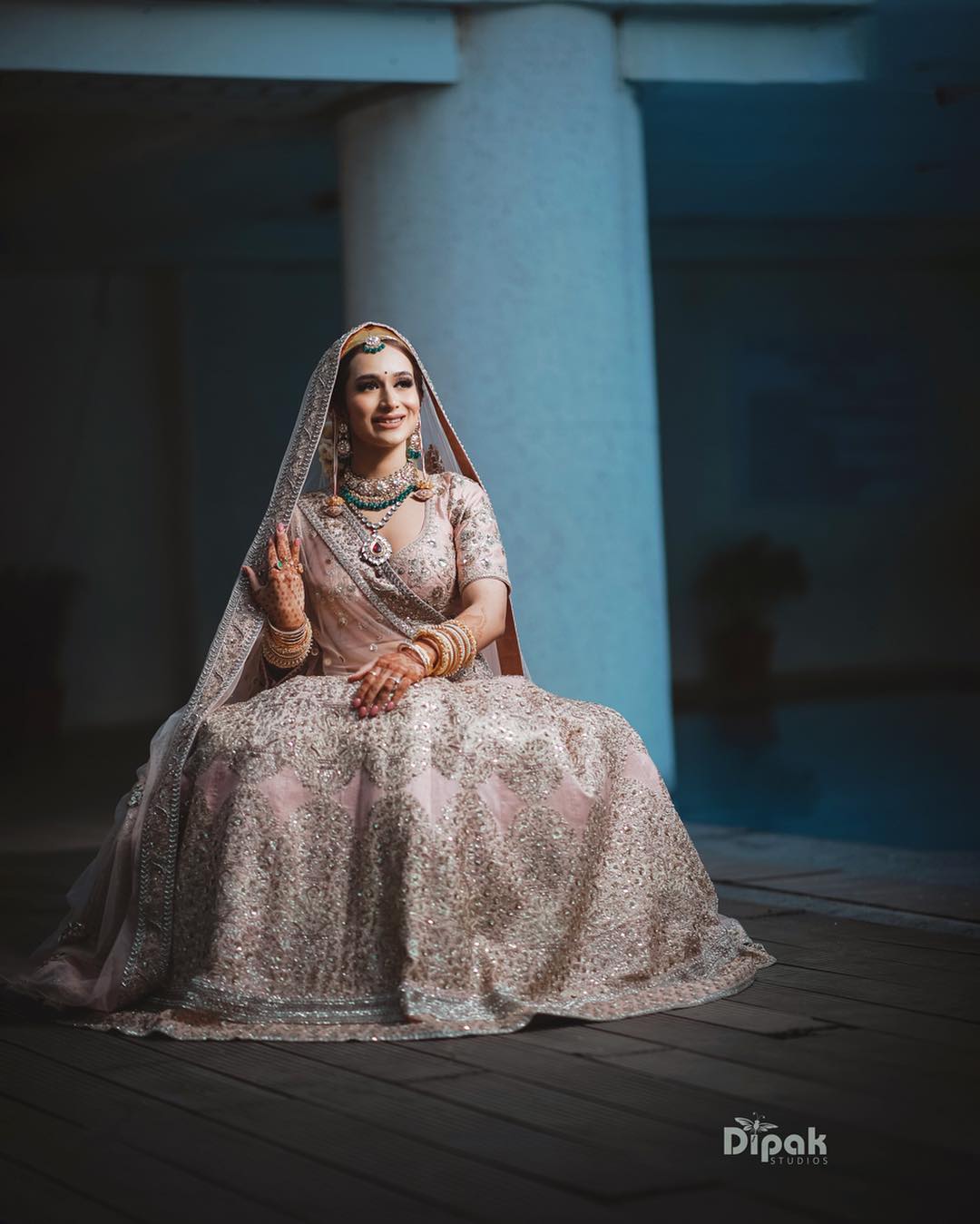
Image Source: Dipak Studios
17. Phirraa Khaber
After the bride returns from her in-law’s house, their relatives come to visit them to make sure she is doing well.
This marks the end of Kashmiri wedding celebrations.
Decoding Kashmiri Bridal And Groom Looks
The traditional Kashmiri bridal dress is known as a Pheran. Nowadays, Kashmiri brides also choose to opt for a bridal saree or lehenga instead of the complete Pheran. The lehenga has a lot of zari work done using golden threads and is blended with Kashmiri embroidery. The bride also wears an elaborate headgear known as Kasaba. Heavy pins and trinkets are worn to hold the headgear in place. To complete the look an embroidered dupatta over the head is worn by the bride.
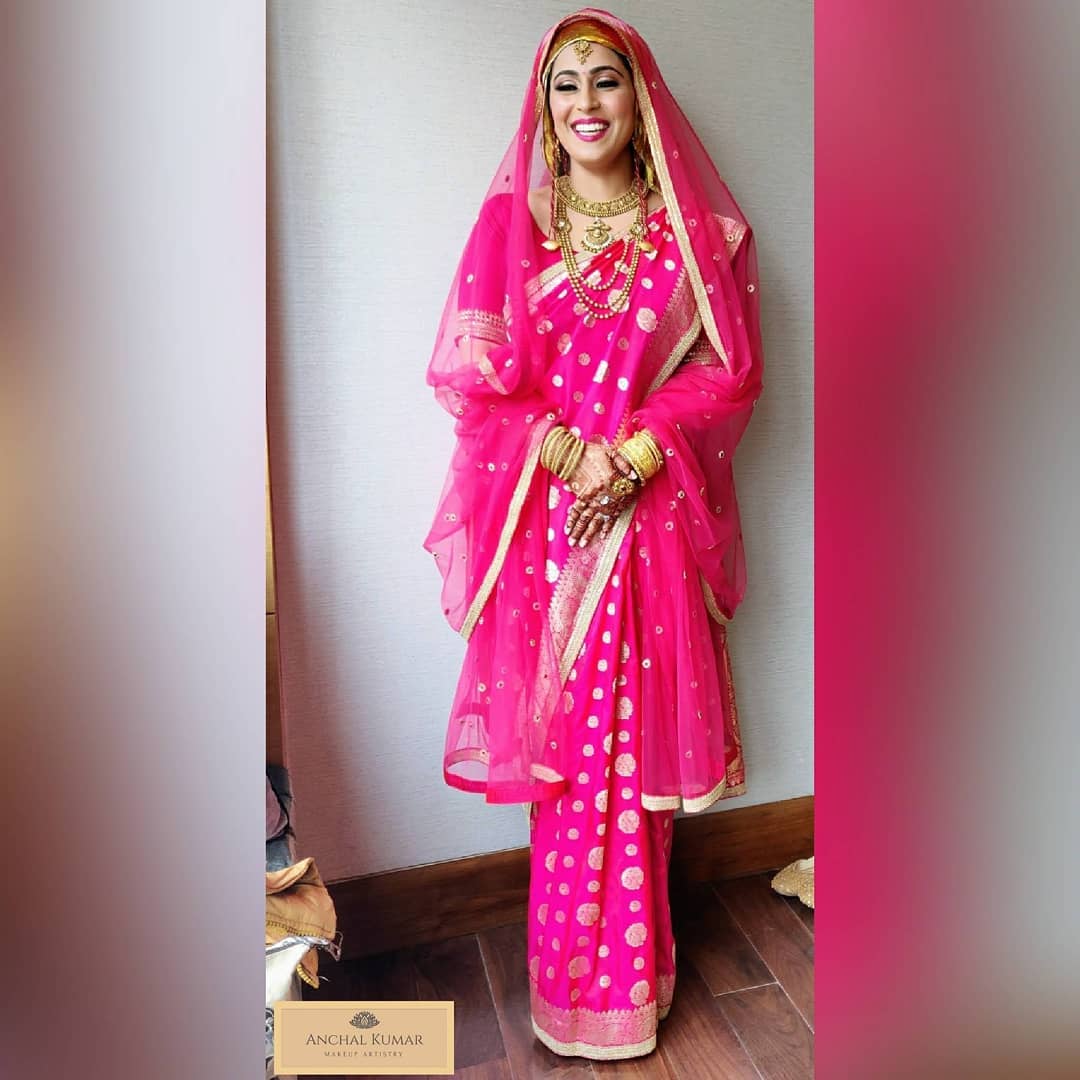
Source: Anchal Kumar Makeup
Whereas a Kashmiri groom wears a Pehran. He too wears a headgear known as Gordastar which bears a real peacock feather threaded by a golden thread. The groom also carries a sword in his waistband.
So, looks like we have made your research easier by listing down all the Kashmiri wedding rituals and outfit details for you to host one!
Also, Read Ways To Host An Eco-Friendly Wedding.

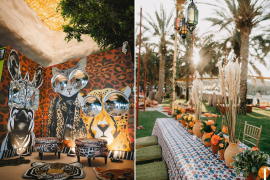

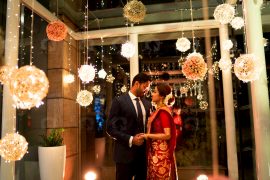
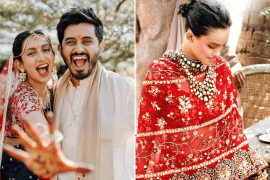

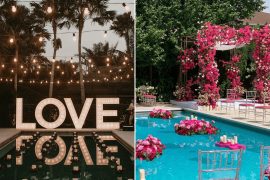






Comments are closed.